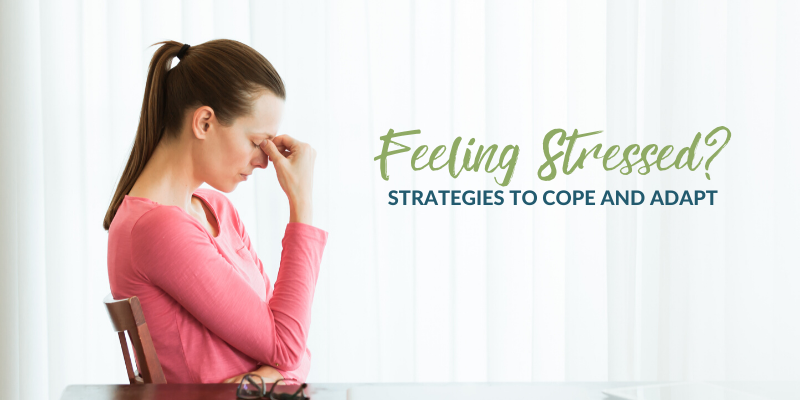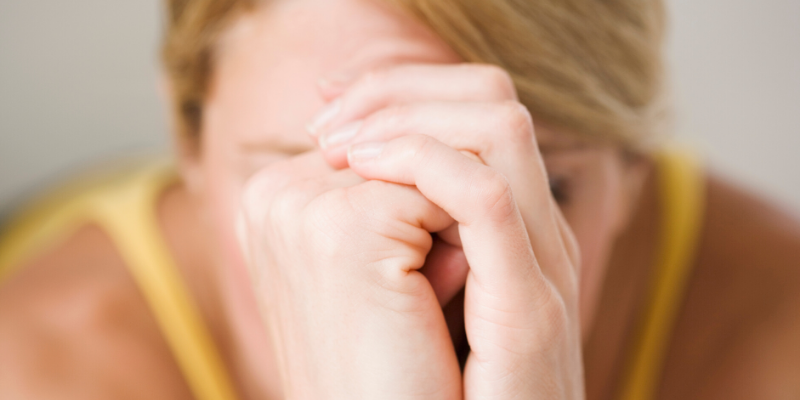
Significant life events, whether positive or negative, can cause us psychological stress and pain which can present itself as loneliness, anxiety or depression.
Difficult events such as divorce, miscarriage, the death of a loved one, the loss of a job, or simply kids switching school, can cause most people to feel varying levels of distress.
Even events that are considered positive, such as getting married or having a child, moving and buying a home, starting your new career—can lead to a significant amount of stress. You may be feeling even more stressed in light of the unprecedented Covid-19 pandemic.
The key to stress management is adaption. We experience stress because sometimes we are not able to use our existing coping mechanisms (or coping skills) as effectively as we would like, to adapt to upcoming changes or different unexpected situations. Sometimes we might need additional support to cope with those changes.
While you cannot always get rid of the stressors and conflicts in everyday life, you can lower your stress by learning how to use effective coping mechanisms.
How do we get back on track and work towards achieving peace of mind? Not necessarily with the absence of the stressors or conflicts from our everyday life, we achieve it through the ability to cope.

Coping Mechanisms: Healthy vs. Maladaptive
To adjust to any kind of stress, positive or negative, you typically use a combination of behavior, thought, and emotional strategies, depending on the situation. Not all coping mechanisms are created equal.
Healthy Coping Mechanisms show awareness of the stressor and a conscious attempt to reduce stress. They can include:
- Support: Talking about a stressful event with a supportive person instead of self-isolating and internalizing the effects of stress can greatly reduce the negative effects of a difficult situation.
- Relaxation: activities that promote feelings of relaxation such as meditation, sitting in nature, or listening to music.
- Problem-solving: identifying a problem that is causing stress and then creating a solution or action plan to tackle the problem head on.
- Humor: Making light of a stressful situation may help maintain perspective and prevent the situation from becoming overwhelming.
- Physical activity: Exercise is a natural and healthy form of stress relief. Activities such as running, yoga, swimming and playing team sports can help manage stress.

Maladaptive Coping Mechanisms tend to use avoidance strategies. They include:
- Escape: withdrawing from friends and becoming socially isolated.
- Unhealthy self-soothing: self-soothing behaviours in moderation can be helpful to manage stress, but can become an unhealthy habit such as overeating, binge drinking or excessive use of the internet.
- Numbing: using activities that will help drown out or overrise distress such as excessive alcohol use or using drugs.
- Risk-taking: seeking adrenaline rushes to distract from stress, including gambling, reckless driving or unsafe sex.
It can be tempting to engage in strategies that will give quick relief. These can often create bigger problems down the road, are counterproductive or can have unintended negative consequences.
It’s important to establish healthy, adaptive coping skills instead. They will help you in the long-run to reduce emotional distress or rid yourself of the stressful situations you face.

When you may need extra support
Stress can cause a significant impact on your mental state and well-being. It’s important to understand some common signs that may indicate you need additional support.
- Feeling drained from too much stress and worry
- Not being able to relax
- Taking everything personally
- Overwhelmed by the feeling of losing control
- Stuck without a clear vision what to do next
- Struggle to build and maintain self-esteem and confidence
- Drained from having to tell yourself the negative thoughts in your head are not true
- Burnt out and exhausted from working constantly
- Put other people’s needs before your own, not sure how to stand up for yourself while taking on the heaviness and negativity of those around you
- Find it difficult to get out of bed
- Can’t remember the last time you had a deep, restful sleep
You’re not alone, we are all in this together.
Talking to a professional or external support person can help you manage your stress and come up with a positive action plan.
You can call 811 or Alberta’s Mental Health Help Line (Toll Free: 1-877-303-2642) if you are uncertain about what the correct first steps are.
Every step is a step in the right direction. No one needs to be ashamed for seeking support.

Reducing Stress: How Hypnosis Can Help
Hypnosis can relieve stress, fears and anxiety as it relaxes your body and lowers tension in your body.
Hypnosis is a coping strategy in itself. Using self-reflection and mindfulness strategies, it can help you clear and calm your mind.
Once we make the choice to be aware of how our thoughts, emotions and behaviors actually influence us, we can learn to create inner peace by choice.
Relaxation achieved through hypnosis allows you to focus on identifying which coping strategies you might need to enhance or to develop. You can work on creating inner calmness so you can find your way back on track successfully. Maintaining a healthy state of mind, which has so much influence over our physical health, should be our main priority but it is also very easy to be forgotten in our fast paced environment.
A healthy state of mind is within your control as you alone have great power over your thoughts and mindset. Hypnosis can give you the tools to help you uncover this power.

Reduce your stress with hypnosis
Book a free consultation with Jasmin Duesterhoeft, Hypnotist
Connect with Jasmin over the phone or use video conference during your free 15-min consultation. Share your questions and concerns as all hypnosis sessions provide a safe, non-judgmental environment.
ABOUT MPH
#20, 2439 54th Avenue SW
Calgary, AB T3E 1M4
T: 403.457.MOVE (6683)
E: admin@mph-health.com
+ Online Booking
HOURS OF OPERATION
Mon: 7AM - 7PMTues: 7AM - 7PM
Wed: 7AM - 8PM
Thurs: 7AM - 7PM
Fri: 7AM - 5PM
Sat: 7AM - 2PM
Sun: 10AM - 3PM
Copyright © 2023 Movement Performance & Health. All rights reserved.

